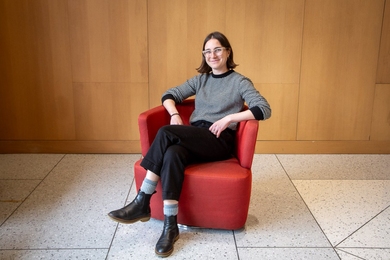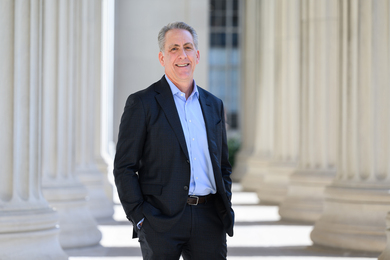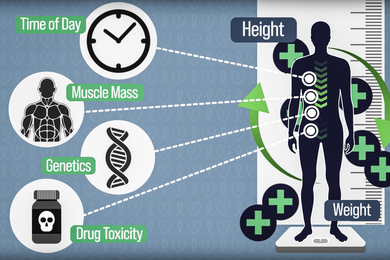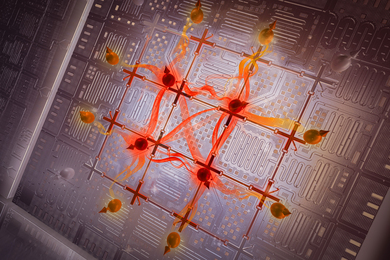While fission reactors are among the most intricate systems in the world, engineering them to run reliably and economically is only a starting point. Fission technology must integrate not only with the energy grid, but with society as a whole, meeting stringent safety, security and environmental expectations with oversight from well-versed managers and policymakers.
Advancing this complex integration is a primary mission of MIT NSE’s Center for Advanced Nuclear Energy Systems (CANES), which conducts a combination of front-line technology development, groundbreaking strategic studies and professional education for nuclear technologists and managers.
As the focal point of MIT NSE’s wide-ranging work in fission, CANES embodies the department’s science-systems-society approach to nuclear energy, playing a central role in the worldwide nuclear community and its ongoing development and improvement. CANES research spans many disciplines, including fission process physics, thermal hydraulics, materials science, systems reliability and probabilistic safety analysis, but maintains a unified perspective that is rare in the academic world.
“Perhaps uniquely among universities, we are able to address all aspects of the reactor — MIT has a well-known reputation for addressing nuclear systems as a whole, as opposed to just the individual pieces,” explains Mujid Kazimi, TEPCO Professor of Nuclear Science and Engineering and Professor of Mechanical Engineering, who has directed CANES since its founding in 2000. Kazimi oversees more than 20 affiliated faculty and research scientists, and more than 60 participating graduate students, all of whom contribute to the Center’s prolific production of research, analysis, symposia and classes.
This broad reach has enabled interdisciplinary investigation of nuclear power’s overall future and the fuel cycle, and technological advances like improvements to light-water reactors (LWRs) and studies of novel reactor designs cooled by salts, liquid metals or gases. The systemic perspective means that topics like reactor maintenance and safety, regulation and non-proliferation are always in mind. These issues in turn drive development of new materials and structures, which can significantly impact reactor performance and effectiveness.
“You can’t understand the entire system without being able to look both ways — at internal features and external impact,” Kazimi observes. “That’s essential to improving society’s readiness to accept the technology. In our report on the future of the nuclear fuel cycle, for example, we pointed out reactor concepts that might create a more-affordable closed fuel cycle, and also be more acceptable on external considerations like fuel resource needs and volume of waste. That came about because we were thinking of both sets of factors.”
Read the full article
Advancing this complex integration is a primary mission of MIT NSE’s Center for Advanced Nuclear Energy Systems (CANES), which conducts a combination of front-line technology development, groundbreaking strategic studies and professional education for nuclear technologists and managers.
As the focal point of MIT NSE’s wide-ranging work in fission, CANES embodies the department’s science-systems-society approach to nuclear energy, playing a central role in the worldwide nuclear community and its ongoing development and improvement. CANES research spans many disciplines, including fission process physics, thermal hydraulics, materials science, systems reliability and probabilistic safety analysis, but maintains a unified perspective that is rare in the academic world.
“Perhaps uniquely among universities, we are able to address all aspects of the reactor — MIT has a well-known reputation for addressing nuclear systems as a whole, as opposed to just the individual pieces,” explains Mujid Kazimi, TEPCO Professor of Nuclear Science and Engineering and Professor of Mechanical Engineering, who has directed CANES since its founding in 2000. Kazimi oversees more than 20 affiliated faculty and research scientists, and more than 60 participating graduate students, all of whom contribute to the Center’s prolific production of research, analysis, symposia and classes.
This broad reach has enabled interdisciplinary investigation of nuclear power’s overall future and the fuel cycle, and technological advances like improvements to light-water reactors (LWRs) and studies of novel reactor designs cooled by salts, liquid metals or gases. The systemic perspective means that topics like reactor maintenance and safety, regulation and non-proliferation are always in mind. These issues in turn drive development of new materials and structures, which can significantly impact reactor performance and effectiveness.
“You can’t understand the entire system without being able to look both ways — at internal features and external impact,” Kazimi observes. “That’s essential to improving society’s readiness to accept the technology. In our report on the future of the nuclear fuel cycle, for example, we pointed out reactor concepts that might create a more-affordable closed fuel cycle, and also be more acceptable on external considerations like fuel resource needs and volume of waste. That came about because we were thinking of both sets of factors.”
Read the full article






